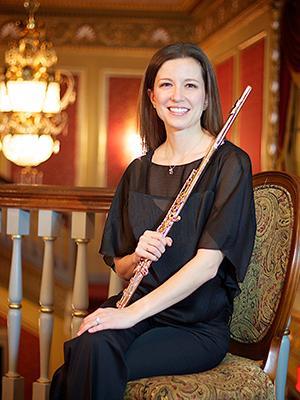The PAC was nearly packed for the final program in this year’s Festival Mozaic, and Music Director Scott Yoo and the talented musicians of the Festival Mozaic Orchestra delivered a powerful crowd-pleaser.
In her pre-concert lecture on Saturday, July 26, Cal Poly professor Alyson McLamore explained that a connecting thread for the evening’s three works was “words,” that is, a story or subtext.
The opener, Beethoven’s “Leonore Overture No. 3,” is the third of four reworkings of the overture to his only opera Leonore (subsequently renamed Fidelio). The story or subtext, then, is the opera’s libretto—not only the lyrics that the singers intone, but the complete storyline.
I contend that there was an additional subtext for this evening’s performance as well: This piece was one that Yoo chose for his Festival Mozaic Orchestra conducting debut 20 years ago. I was not in the area then, but this year’s performance was absolutely masterful. Each instrumentalist gave Yoo a full accounting of their skills, yielding a beautiful acoustic tapestry of Beethoven’s Romantic-era sensibilities.

McLamore related a fascinating unspoken connotation for the concert’s second work, “Concerto for Flute and Orchestra” by Danish composer Carl Nielsen. Inspired by a Mozart piece for woodwind quintet, Nielsen decided to write one himself. He was so pleased by the results that he promised to write a concerto for each of the participating players. Unfortunately, ill health prevented him from carrying out that offer, except for the flute. I think he managed to honor some of the commitment by including a number of musical by-plays between the flute and other members of the orchestra, such as the bass trombone in movement 1 and with bassoons in movement 2.
World-class flutist Alice K. Dade sparkled as the soloist, seeming to forge musical conversations with the other instruments as Nielsen intended and brilliantly executing the cadenzas. During the ensuing standing ovation, I think we understood why Yoo gave his soloist wife a kiss on the cheek.
The evening’s last programmed work was a selected group of movements from the 20th century ballet Romeo and Juliet by Soviet composer Sergei Prokofiev. Of course, the subtext is the work of 17th century playwright William Shakespeare. There are several dance sequences depicting the plot elements of the play, and Prokofiev made use of every asset afforded him by a large symphony orchestra to give the story sonic life.
Putting together a comparable ensemble at the PAC, Yoo judiciously selected nine of the ballet scenarios, beginning with the starkly imperious “Dance of the Knights” and ending with “Romeo at Juliet’s Tomb.” Once again conductor and orchestra meshed beautifully in the execution of this moody masterpiece. The standing ovation was so energetic this time that Yoo was compelled to lead the orchestra in an encore—directing a truly fiery rendition of the “Jester’s Dance” from Tchaikovsky’s opera The Snow Maiden.
Cue the audience going nuts!
Postscript
There was one Festival Mozaic SLO Summer 2025 performance I did not include in previous reviews (because it was a short community concert and not formally assigned): an event featuring Young Artists Program musicians Sophia Molina and Anne-Marie Wnek on violin, Daniel Simmons on viola and Ethan Blake on cello.
It was at noon July 10 at the Atascadero Library, just minutes away from our home, so my wife and I decided to attend. When I looked at the program, I saw that they were performing Beethoven’s “String Quartet No. 16 in F-major” Op. 135. My eyebrows shot up. This was Beethoven’s last major work and is considered one of his most difficult yet beautiful.
“How daring,” I thought.
The quartet came, they played, we were conquered! It was stunning! The fluidity of passing the melody from instrument to instrument, the precision of rhythm, and the sincerity of expression made me “fall apart.” They certainly deserved this review.
I’m looking forward to the next Festival Mozaic. SLO County is so fortunate to be the host of such events.
